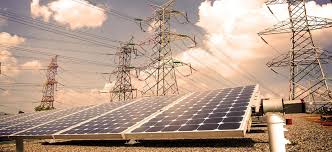Stakeholders in Nigeria’s electricity industry have again raised alarm over the country’s weak national grid and called for immediate reforms to help integrate renewable energy into the power system. The call was made during the 9th anniversary of the Nextier Power Dialogue, with the theme “Pre-empting Resilience for Accelerated Renewable Energy Scaling.”
The event was organised by The Electricity Hub and supported by the African Climate Foundation (ACF). It brought together top players in the sector, including regulators, private companies, and policymakers, to discuss Nigeria’s readiness to move to renewable energy and what steps must be taken to get there.
One of the key speakers, Busayo Omofe, a consultant with Nextier, explained that Nigeria’s electricity grid is still very fragile and cannot handle a large amount of renewable energy. She said the country must urgently invest in upgrading power infrastructure and also train more people to manage new technologies that come with clean energy.
Dr. Yusuf Ali, a commissioner from the Nigerian Electricity Regulatory Commission (NERC), said adding renewable energy like solar and wind to the grid will only work if the grid is improved and there is enough demand for the electricity being produced. He explained that without a modern Supervisory Control and Data Acquisition (SCADA) system, it is difficult to monitor and balance the unpredictable nature of renewable energy.
Dr. Ali, however, said that there is hope as the World Bank is supporting Nigeria through the Delta Project, which will help modernize the country’s grid control systems by 2026.
From the distribution angle, Engr. Emmanuel Ogwuche of Abuja Electricity Distribution Company (AEDC) said that renewable energy is still expensive compared to the traditional power sources like gas and diesel. He said the government must support the sector by creating Renewable Energy Zones and giving financial support to make clean energy projects easier to finance.
Ogwuche also recommended the use of Public-Private Partnerships (PPPs) and Independent Power Producers (IPPs) to drive more investments into the sector and reduce the costs for both developers and consumers.
Adding to the conversation, Engr. Moses Ezirim from JA Solar, said that battery storage systems and smart meters are important if Nigeria wants to take renewable energy seriously. He called on the government to reduce bottlenecks and encourage more small-scale energy producers, especially in rural areas that are often ignored by the central grid.
Ezirim said a decentralised energy system—where smaller, local systems supply power—could serve more Nigerians, especially in villages and hard-to-reach communities.
Also present was Olayemi Arowolo, Policy Manager at Nextier, who emphasised that Nigeria needs better data to plan its energy future. He stressed that planning must be based on facts, with real-time monitoring of the electricity system. He called on both government and private sector players to work closely together to achieve results.
According to Arowolo, Nigeria needs policy tools that are suitable for local realities and must be followed with strong implementation. He believes that unless government agencies and private firms join hands, the country’s renewable energy journey will continue to face delays.
At the end of the dialogue, participants agreed on several key steps that should be taken to fast-track renewable energy in Nigeria. These include full implementation of SCADA systems for real-time control, creation of Renewable Energy Zones with financial incentives, adoption of cost-reflective tariffs, deployment of energy storage systems, and stronger cooperation among federal, state, and private players.
They warned that unless Nigeria takes urgent action to upgrade its grid and reform its regulatory systems, the dream of a clean, stable and affordable power supply will remain out of reach. But with the right policies and partnerships, Nigeria can become a leader in clean energy and improve energy access across the country.
